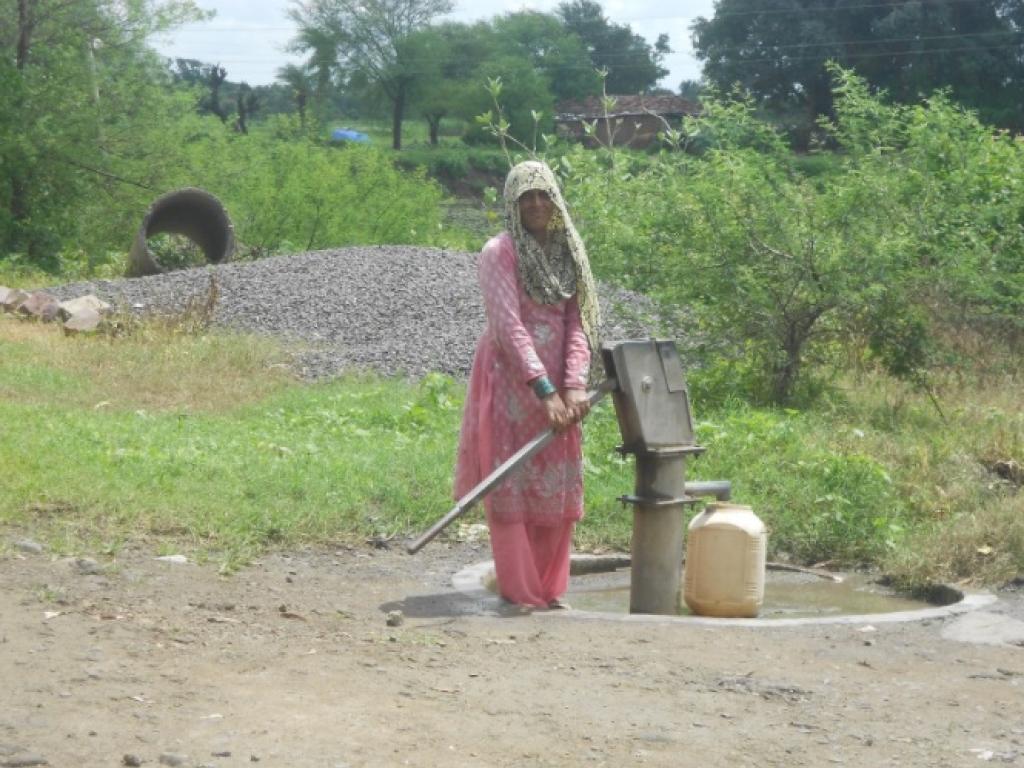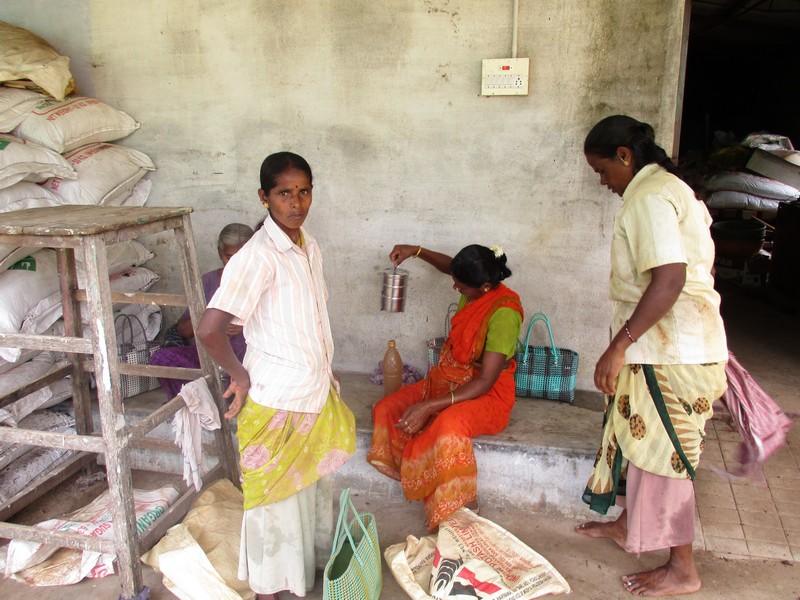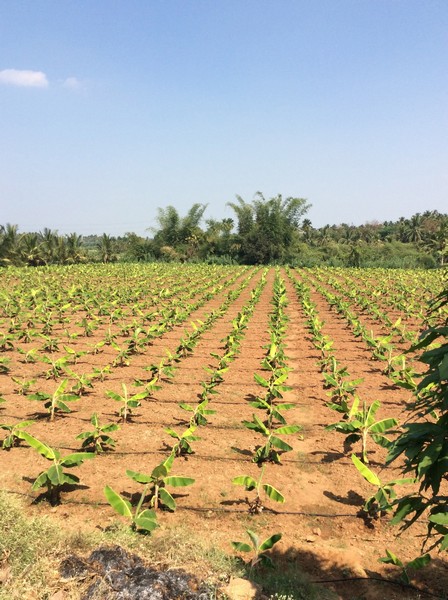How depleting groundwater threatens women's livelihoods in India's Bhavani region

By Divya Solomon, ASSAR researcher from Ashoka Trust for Research in Ecology and the Environment (ATREE).
In December 2016, as part of the Small Opportunities Grant awarded by ASSAR, I visited the University of East Anglia (UEA) to work with Dr Nitya Rao on a study I am conducting in the Bhavani region in Tamil Nadu, India, on gender and groundwater.
My initial foray into gender research began with the ‘Gender’ summer short course that I attended at UEA in June 2106. Taking cues from my learning at this course, I delved deeper into gender themes in the ATREE-ASSAR field site. My study in the Bhavani region focuses on the impact of depleting groundwater on women’s livelihoods and wellbeing, and the implication for climate change adaptation. Given Dr Rao’s extensive work on gender and agriculture, particularly in South India, she was an immediate choice as a mentor on this research.

Photo credit: Divya Solomon - When private wells fail, women have to travel longer distances to collect water from public standpipes.
My preparation for my visit began in October: I spent extensive time in the field to learn how women view and prioritise water between the domestic and livelihood sphere. I conducted in-depth interviews and life histories with 20 households, focusing on women’s relationships with different sources of water and the impacts of current development trajectories and depleting resources on these often-nuanced relationships. In the beginning of November, transcripts in hand, I was ready for my long journey to UEA to begin unpacking the data and writing on it.

Photo credit: Divya Solomon - Women gather for lunch after a day of working in the field.
On my first night in Norwich at a dinner hosted by Dr Rao, I had the opportunity to interact with PhD students working on a variety of projects, mainly in Asia and Africa. Despite the cold weather, I received a warm welcome from the International Development Centre (DEVco) folks at UEA.
The following Monday, I was assigned my space and given access to UEA’s impressive library. I attended lectures on development studies and disaster risk reduction by Dr Rao and Dr Roger Few, which allowed me to interact with the diverse range of students at DEVco’s Master’s programme and served as a good refresher.
Strongly gendered assets
During my time in UEA, Dr Rao guided and reviewed my work periodically, providing useful pointers from her vast repertoire of experience on gender research in South India. A particularly interesting theme that emerged from the data was the interdependence between women’s assets and groundwater. Gold and livestock emerged as strongly gendered assets that were impacted by groundwater depletion.

Photo credit: Divya Solomon - Increasing cultivation of water intensive cash crops, such as banana, has led to depleting groundwater tables in the region.
The interconnectedness of livestock and water was fairly obvious: livestock requires large amounts of water and fodder, both of which are impacted during periods of scarcity. This issue takes on a gendered face, particularly in Tamil Nadu, as most women’s welfare schemes over the last decade have provided milching cattle to augment livelihoods. This primarily women’s livelihood is now threatened by depleting groundwater as men prioritise irrigation of cash crops over provisioning of water to livestock. As a result, livestock ownership is depleting and women have to increasingly opt for off-farm work. Furthermore, this has impacted household dairy usage with implications for household nutrition. Gold is often given as ‘dowry’ and is maintained by women as savings. My research indicates that gold is being increasingly pawned to fund the drilling of ever-deepening borewells in the region, affecting women’s financial security. Constant interactions with Dr Rao provided me with useful insights and helped me to further unpack these themes.
Integrating arts and humanities in climate change research
During my time at UEA, I also had the opportunity to sit in on documentary screenings as well as interesting conferences and workshops. One of the themes, which I had the chance to explore during my time in UEA, was the integration of arts and humanities in climate change research. During the ‘Imagining Futures’ workshop, I had the opportunity to listen to the experiences of historians and archaeologists and the potential for integrating historical anthropological themes into present climate adaptation work.
Apart from experiencing the culture and hospitality of Norwich, which is particularly special during the holiday season, I had the invaluable experience of interacting with a wide variety of researchers from diverse backgrounds. I also had access to the rich resources available at UEA, which enriched my understanding and helped me gain new insight into my research.